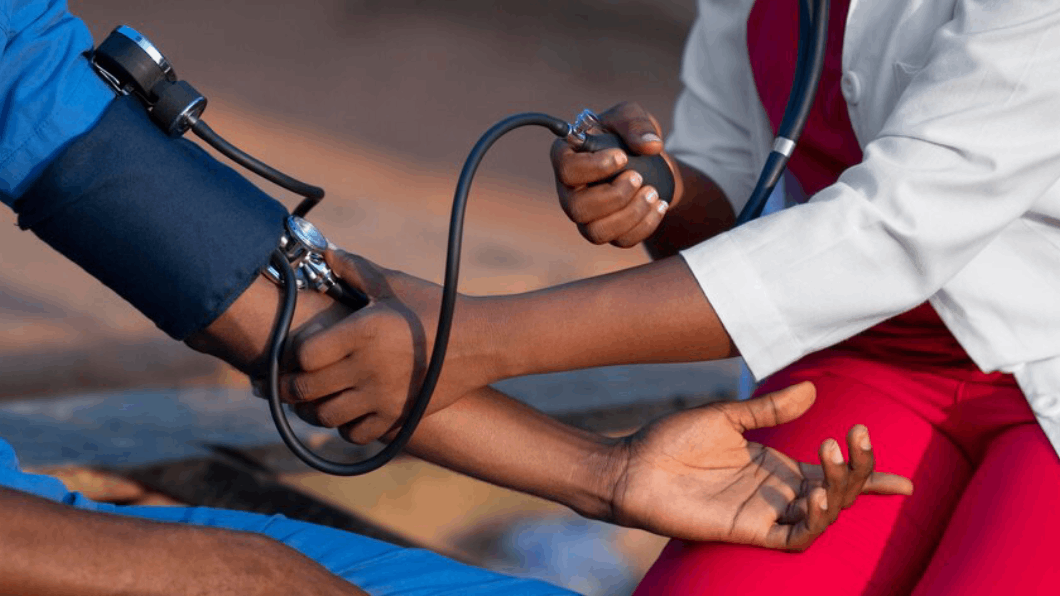Hypertension, commonly known as high blood pressure, is a chronic medical condition characterized by elevated blood pressure levels. It is a significant risk factor for cardiovascular diseases such as heart attack, stroke, and heart failure. Contributing factors include genetics, an unhealthy diet, a lack of physical activity, and stress. Management of hypertension typically involves lifestyle modifications, such as adopting a healthy diet, regular exercise, and stress management techniques, along with medication when necessary. Regular monitoring and adherence to treatment are essential for controlling hypertension and reducing the risk of complications.
Medark Hospital employs a comprehensive approach to treating hypertension, focusing on personalized care and evidence-based interventions. Their team of skilled healthcare professionals conducts thorough evaluations to assess each patient’s unique needs and risk factors. Treatment plans may include lifestyle modifications, dietary changes, medication management, and regular monitoring to achieve optimal blood pressure control. With a commitment to promoting cardiovascular health, Medark Hospital empowers patients to manage hypertension effectively, reducing the risk of complications and improving overall quality of life.
The diet plays a crucial role in managing hypertension. A heart-healthy diet rich in fruits, vegetables, whole grains, and lean proteins can help reduce blood pressure levels naturally.
The advent of smartphones, computers, and the internet has significantly changed our daily routines. While these advancements have brought about immense convenience, they have also led to sedentary lifestyles. Increased screen time, reduced physical activity, and unhealthy eating habits have become prevalent, contributing to rising obesity rates.
Being overweight or obese increases the risk of hypertension. Losing even a modest amount of weight can significantly lower blood pressure levels. Focus on achieving a healthy weight through a combination of a balanced diet and regular physical activity. Aim for at least 150 minutes of moderate-intensity exercise per week, such as brisk walking, cycling, or swimming, to support weight loss and improve cardiovascular health.
Regular physical activity is essential for managing hypertension and improving overall cardiovascular health. Exercise helps strengthen the heart, lower blood pressure, and improve circulation. Aim for a combination of aerobic exercise, such as walking, jogging, or cycling, and strength training exercises to promote heart health and maintain muscle mass. Consult with our healthcare provider before starting any exercise program, especially if you have underlying health conditions.
Incorporating stress-reduction techniques into your daily routine can help lower blood pressure and improve overall well-being. Consider practicing relaxation techniques such as deep breathing, meditation, yoga, or tai chi to reduce stress levels. Additionally, engaging in hobbies, spending time with loved ones, and getting adequate sleep can also help manage stress and promote heart health.
Limit alcohol intake to moderate levels, which is defined as up to one drink per day for women and up to two drinks per day for men. Quitting smoking is one of the most important steps you can take to improve your cardiovascular health and reduce the risk of hypertension and other health conditions.
Managing hypertension naturally involves adopting lifestyle changes to promote heart health. A key component is following a heart-healthy diet for high blood pressure, which emphasizes fruits, vegetables, whole grains, lean proteins, and low-fat dairy while limiting sodium, saturated fats, and added sugars.
Incorporating potassium-rich foods, such as bananas and leafy greens, can help counteract sodium’s effects on blood pressure. Regular physical activity, including aerobic exercise and strength training, supports weight management and cardiovascular health. Stress reduction techniques like deep breathing, meditation, and yoga also play a vital role in managing hypertension naturally. Additionally, limiting alcohol intake and quitting smoking are essential for blood pressure control. By making these lifestyle changes, individuals can naturally reduce high blood pressure, improve overall health, and reduce the risk of cardiovascular complications.
